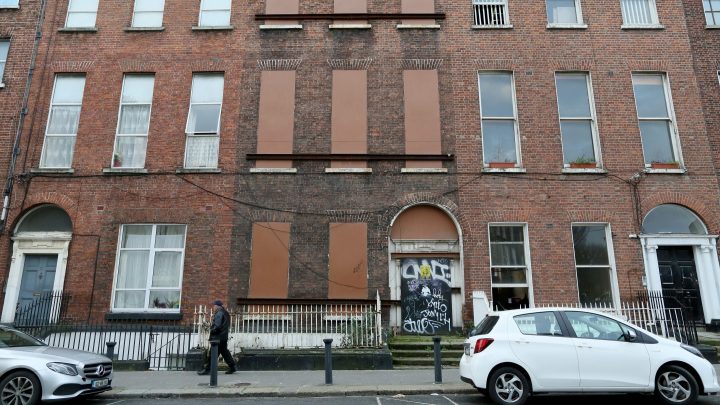
What should Ireland do with its budget surplus?

Ireland is currently grappling with something you don’t often hear about when talking about government money: a budget surplus. This $10.9 billion has been driven by soaring corporate tax revenue from tech and pharmaceutical companies.
But can the Irish government balance public expectations and address pressing issues like housing and homelessness?
You might think that having too much money is a good thing. But for Ireland, it comes with its own set of challenges. Irish Times economic columnist Cliff Taylor says Ireland has gone from generating $4 billion in tax revenue a year in 2015 to more than $20 billion now.
“Ireland has had a low corporation tax rate for many years now since the mid-1950s,” he said. “Ireland has been lucky enough to be in the right position to attract a massive new wave of investment particularly from the pharma sector and technology.”
Even though companies like Google, Apple and Meta are paying lower taxes than they would in the United States or United Kingdom, what they pay is still a lot of money for Ireland.
The thing is, when you’ve got a giant pile of cash, everyone suddenly has ideas of how you can spend it. So what do voters in Ireland think? Well, opinions vary.
“I’d like the government to put the money back into the health service to open up extra beds for people,” said Elaine Fallon, who owns Brookwood Pottery in Dublin.
Oisín Ó Faoláin, who is 34 and lives in Dublin, said that the government needs to use the money for public housing.

“But I’m also keenly aware that it is unlikely given the ideological commitments of our government that they will do this,” he said, “and instead choose to spend their housing budget on things like the housing assistance payment, which ultimately effectively is just a subsidy for landlords.”
Oisín Field, a student in Dublin City University, wants help with housing too: “Try and combat the housing crisis or — I don’t know — put in place some, like, laws against vulture landlords or try to build some emergency housing or something like that.”
For business owners in the hospitality sector, they want the VAT rate — an extra tax that gets added to things you buy and is collected by the government to help pay for public services — to be reduced after it was recently put up. The rise is challenging for Gregory Autret, who owns French café Le Petit Breton.
“The VAT increased recently from 9% to 13.5%, which makes it difficult for everyone and for the business,” he said.
And with a general election coming up next year, where the government chooses to put its money will be keenly watched.
There’s a lot happening in the world. Through it all, Marketplace is here for you.
You rely on Marketplace to break down the world’s events and tell you how it affects you in a fact-based, approachable way. We rely on your financial support to keep making that possible.
Your donation today powers the independent journalism that you rely on. For just $5/month, you can help sustain Marketplace so we can keep reporting on the things that matter to you.

















